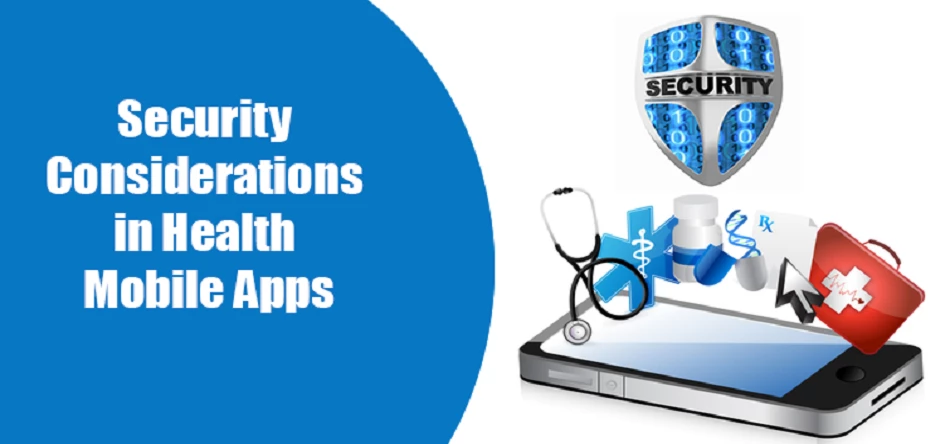
Partner Article
Effective ways to create a secure mobile app for providers
Healthcare providers around the world are busy creating internal business apps in order to help clinicians enhance patient care or streamline core processes. However, they come across several challenges in terms of privacy and security. Designing an app that work well for a doctor or nurse working at various hospitals is not easy, at times several in the same day.
Still providers must keep making efforts to develop such transformative apps like certain steps can be taken in order to make sure that these apps are highly secure.
Health system executives must abide by these guidelines in order to create a secure and effective enterprise app.
Understand your device: Various healthcare facilities are going to have different devices that require being served, whereas end-users are going to have varying levels of mobile competency. The ones targeting physicians as the end-user are likely to tilt heavier towards iOS devices whereas the ones who travel nurses or other services are likely to have more Android devices.
Develop apps with usability: After understanding your end-users well, you must focus on the app’s usability. In healthcare environments, the app will be critical and it impacts patient care. As you go on to deliver educational materials for doctors, tracking seizures, sleep patterns or stress levels of patients or used to aggregate and disseminate classified patient information, the app must be easy to understand by everyone including the end-user who is not too skilled.
Apply app-level security: You can address global healthcare privacy concerns by securing mobile workflows spanning the whole of healthcare value chain. Mobile app policies enable administrators have control over individual apps offering data protection at the app-level. You can do this by app wrapping, a way to apply security policies one the app is compiled. In order to ensure greatest level of mobile security to a healthcare app, institutions must integrate government-level data encryption, corporate authentication requirements for sign-on, self-updating apps and app expiration policies enabling an app for a significant time period helpful for workers who access apps for multiple healthcare institutions.
An app system of record and governance policy: As the mobile app development capabilities are enhanced by healthcare providers, many a times they develop an app portfolio supporting all end-users. Possible one internal team or multiple teams have built these apps, comprising of third-party partners. In order to make sure the app is high on quality and meets security standards, you must manage all apps in a centralized system of record. This approach is helpful to the administrators in inspecting the app for malicious code or malware. Simply sign and execute security-policies getting insight into how and when the app is being used. This greatly saves time across the complete life cycle of the app.
Allow users to get apps securely: Healthcare providers must allow end-users to download the app easily or it may remain unused. An app can be distributed in many ways. For instance, if there is a specific crucial app with a defined user group, a download link to an app managed policies may prove to be extremely useful. On the flip side, a well-designed private app store has the ability to drive the highest levels of adoption and user experience while the analytics are also helpful in managing ongoing app health. Through a private enterprise app you can effectively reach wide-ranging users, including direct employees, contractors and visiting physicians sans the need to compromise security via app deployment.
Gain app insight with analytics: No matter you distribute test or production apps, you need to collect user comments and app ratings offering important closed-loop feedback to app administrators and developers. This is helpful as you plan the next app iteration. App analytics also allow administrators get to know more about actual app use patterns.
This way it won’t be wrong to say that enterprise apps transform healthcare practices and processes, still the deployment is necessary with vital security and privacy protections. It holds to be true in mobile healthcare environment, whereas clinicians use their own devices and desire real-time access to crucial healthcare data.
Healthcare providers must keep these guidelines in mind and bring revolutionary changes in the arena. Keep visiting the space or more updates.
This was posted in Bdaily's Members' News section by Octal Info Solution Limited .








 When will our regional economy grow?
When will our regional economy grow?
 Creating a thriving North East construction sector
Creating a thriving North East construction sector
 Why investors are still backing the North East
Why investors are still backing the North East
 Time to stop risking Britain’s family businesses
Time to stop risking Britain’s family businesses
 A year of growth, collaboration and impact
A year of growth, collaboration and impact
 2000 reasons for North East business positivity
2000 reasons for North East business positivity
 How to make your growth strategy deliver in 2026
How to make your growth strategy deliver in 2026
 Powering a new wave of regional screen indies
Powering a new wave of regional screen indies
 A new year and a new outlook for property scene
A new year and a new outlook for property scene
 Zero per cent - but maximum brand exposure
Zero per cent - but maximum brand exposure
 We don’t talk about money stress enough
We don’t talk about money stress enough
 A year of resilience, growth and collaboration
A year of resilience, growth and collaboration